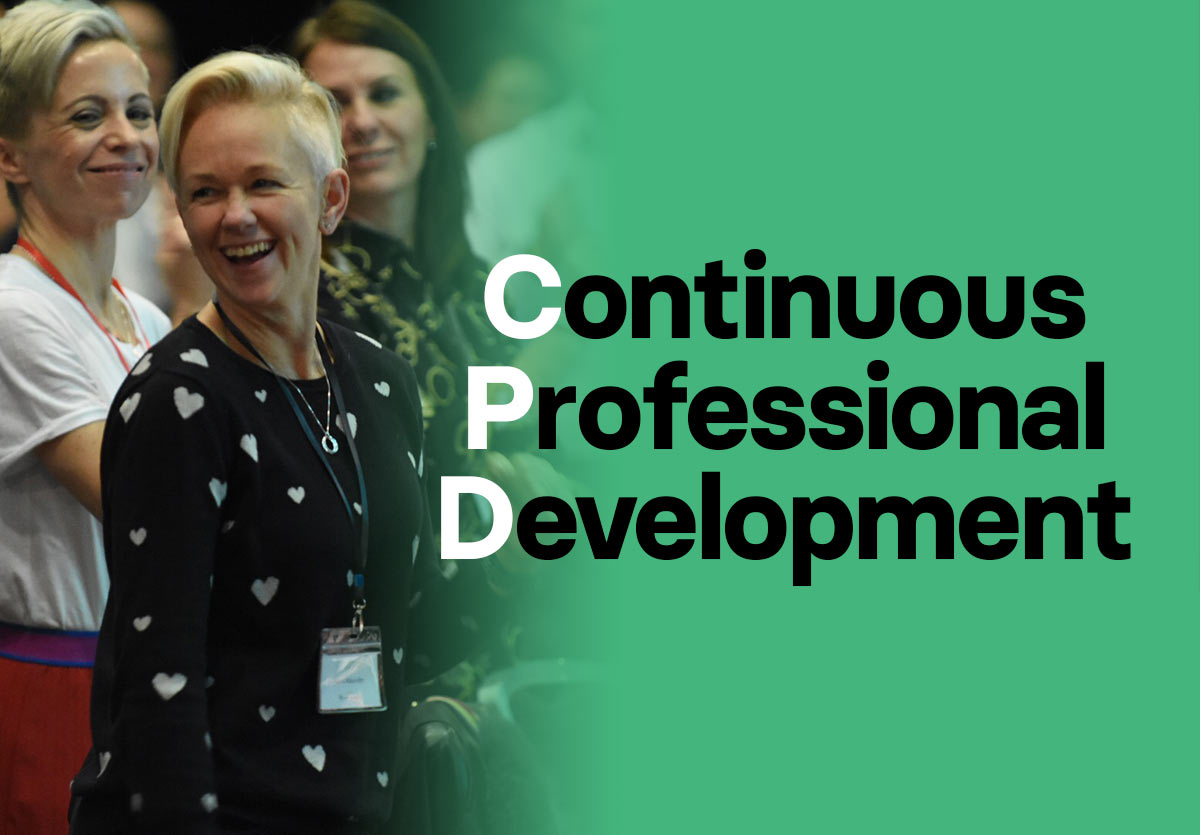When it comes to the dynamic landscape of modern leadership, executive coaching stands at kind of a crossroads, grappling with legacy issues that have persisted since the 1980s. The traditional coaching model, rooted in performance management and organisational goals, now faces a significant misalignment with the evolving expectations of today’s leaders.
In this article, as we urge executives to embrace vulnerability and authenticity, the coaching industry remains stuck in an outdated narrative that discourages personal connections and authentic self-expression. This discrepancy sparks a crucial call for a paradigm shift in the realm of executive coaching.
So, it’s time to reassess and redefine coaching methodologies to meet the unique needs of contemporary leaders, fostering a coaching experience that aligns with the authentic essence of both individuals and organisations. Join us on a journey to explore why organisations need to rethink their approach to executive coaching, breaking free from the shackles of outdated practices and embracing a transformative coaching paradigm.
The Dilemma of 1980s Style Coaching
As we are aware in the coaching field, in the 1980s executive coaching experienced a significant surge in development. This growth was fueled by an escalating demand for leadership development and outplacement services. Executive coaching, as defined by experts, involves a collaborative relationship between a client holding managerial authority and a professional coach. This partnership is centered around mutually defined goals, aiming to elevate professional performance, personal aspirations, and organisational effectiveness.
During this period, a prevalent coaching style leaned heavily towards a non-directive approach, where coaches commonly provided explicit solutions and strategies without prioritising collaborative and inclusive dynamics & emphasising the client’s role in creating change. Despite the evident evolution in the dynamics of the modern workplace in 2024, a subset of coaches still persists with these outdated approaches. This persistence may be attributed to a combination of familiarity, resistance to change, and a lingering misconception that such methods remain effective, highlighting a dilemma in adapting coaching practices to contemporary needs.
The persistence of these outdated coaching approaches may lead to a disconnect between coaches and the leaders they aim to support. In an era where adaptability and agility are valued, rigid coaching styles risk stifling creativity and hindering the development of leaders who thrive in dynamic and collaborative environments.
Incompatibility with the Contemporary Leadership Landscape
The core of executive coaching lies in continuous learning, emotional support, and feedback, fostering transformative experiences. While various models exist, common features include goal-setting, awareness-building, commitment, accountability, planning, and action. Notably, this approach places a distinct emphasis on goal-directed initiatives, aligning objectives with organisational strategies to enhance overall workplace performance.
The contemporary leadership landscape on the other hand, is characterised by diversity, inclusion, and a more participatory approach to decision-making. Leaders are expected to possess emotional intelligence, empathy, and the ability to navigate complex and ambiguous situations. Unfortunately, the coaching styles rooted in the 1980s often prove incompatible with these natural yet evolving expectations.
Modern leaders are encouraged to foster a culture of open communication when feedback flows in multiple directions. In contrast, coaches relying on outdated methodologies may struggle to address the unique challenges posed by a diverse and globalised workforce in a digital age. Additionally, the emphasis on individual achievement over team collaboration in traditional coaching models may not align with the collaborative nature of today’s leadership roles.
It is crystal clear that the incompatibility between 1980s coaching styles and the contemporary leadership landscape creates a dilemma for both coaches and the leaders they support. It raises questions about the effectiveness of coaching relationships when the methodologies employed do not resonate with the challenges and expectations of the present business environment.
The Need for Coaches to Evolve Alongside Changing Leadership Dynamics
Recognising the dilemmas posed by the persistence of outdated coaching approaches, there is a growing imperative for coaches to evolve alongside the changing dynamics of leadership. Coaches must embrace a more flexible and adaptive mindset, incorporating contemporary leadership principles into their methodologies.
The evolution of coaching involves a shift towards collaborative, empowering, and empathetic approaches. Coaches need to facilitate the development of leaders who can navigate uncertainty, lead diverse teams, and foster innovation. This necessitates a departure from the prescriptive nature of 1980s coaching towards a more facilitative and inquiry-based style that encourages self-awareness and continuous learning.
Shifting the Focus: From Performance to Personal Growth
In addressing the challenges posed by outdated coaching approaches, the imperative is not only to adapt to contemporary leadership dynamics but also to shift the focus from a narrow emphasis on performance to a more holistic approach centered on personal growth.
Identifying the Flaw in the Current Executive Coaching Model
In the last 15 years, the trend of hiring coaches for promising executives has seen a significant rise. While some coaches bring expertise from psychology, a growing number come from diverse backgrounds such as athletics, law, business academia, and consulting. While these professionals undoubtedly contribute to enhancing executive performance, it’s important to shed light on a different perspective.
That is to say, in a considerable number of instances, executive coaches lacking rigorous psychological training may inadvertently cause harm. Due to their backgrounds and biases, they may downplay or overlook deep-seated psychological issues they aren’t equipped to understand. More alarmingly, when an executive’s challenges arise from undetected or ignored psychological difficulties, coaching can exacerbate the situation. From a unbiased standpoint, addressing unconscious conflicts becomes crucial, especially when symptoms persist or intensify.
Furthermore, one of the primary flaws in the current executive coaching model lies in its tendency to prioritise immediate performance outcomes rather than fostering enduring personal development. Traditional coaching models often focus on improving specific skills or addressing isolated challenges, neglecting the broader context of a leader’s personal and professional growth.
By narrowly concentrating on short-term performance gains, coaches risk missing the opportunity to cultivate the fundamental qualities that contribute to sustained leadership excellence. The flaw lies in the assumption that enhancing specific competencies in isolation will automatically translate into overall effectiveness, without considering the interconnected nature of personal and professional development.
The Significance of Personal Development in Leadership Effectiveness
Leaders frequently find themselves entangled in the ceaseless rhythm of task-driven contemplation, particularly when facing imminent deadlines and weighty decisions. Yet, amid the challenges of supervising teams, handling projects, and navigating strategies, the importance of self-reflection and personal development can easily be neglected. Managing isn’t solely about steering the ship; it’s also about consistently refining skills and fostering self-awareness.
For instance, consider Steve Jobs, the visionary co-founder of Apple Inc., who provides a compelling example of how personal development can profoundly impact leadership effectiveness. Known for his relentless pursuit of innovation and design excellence, Jobs was not merely focused on product development but also on his own personal growth.
Throughout his career, Jobs faced setbacks, including being ousted from Apple, but he used these challenges as opportunities for self-reflection and learning. During his time away from Apple, he founded NeXT and Pixar, where he honed his leadership skills and gained a deeper understanding of collaboration and creativity. Jobs’ return to Apple marked a transformative period, not only for the company but also for him personally. His experience and growth during the interim years significantly influenced his leadership style, making him a more empathetic and visionary leader.
Also, Angela Merkel, the former Chancellor of Germany, is an exemplary figure in modern politics who illustrates the importance of personal development in leadership effectiveness. Merkel, often referred to as the “Iron Lady” of Germany, exhibited resilience, adaptability, and a commitment to continuous learning throughout her political career.
Coming from a background in quantum chemistry, Merkel entered politics after the fall of the Berlin Wall. Her leadership journey included navigating the complexities of German reunification and later steering the country through economic challenges and the European debt crisis. Merkel’s leadership style was characterised by pragmatism, consensus-building, and a focus on steady, measured decision-making.
Furthermore, we can consider the transformative leadership of Mahatma Gandhi, who not only led a nation to independence but also exhibited a deep commitment to personal development through spiritual exploration and self-discipline.
Such examples highlight that leadership effectiveness is not solely determined by external achievements but is profoundly linked to an individual’s inner growth, self-awareness, and ability to connect with others on a human level.
Paseda360’s Approach: Nurturing Leaders Holistically for Lasting Impact
In response to the historical inadequacies of traditional coaching, Paseda360 follows an approach that transcends performance-driven objectives. Our methodology pivots towards nurturing leaders holistically, recognising that personal development is not a mere requirement but a cornerstone of effective leadership.
Through a co-created reality, Paseda360 encourages leaders to shed the pretender masks that often shroud their true selves. Our coaches, exemplifying vulnerability and authenticity, guide leaders in a journey that encompasses their life stories, values, and future aspirations. By integrating personal growth into the coaching paradigm, Paseda360 endeavors to redefine executive coaching for the 21st century, promoting leaders who are not only proficient in achieving organisational goals but are also resilient, authentic, and poised for enduring success.
Embark on a transformative exploration with Paseda360 as they delve into the history of executive coaching, unveiling its historical shortcomings. Together, let’s pave the way for a future where personal growth takes center stage in leadership development.
Unmasking Leaders: The Authenticity Imperative
Historically, leaders have sometimes felt compelled to adopt dual personas – a professional façade that aligns with organisational expectations and a more personal, authentic self-hidden beneath the surface. However, maintaining this duality can have significant drawbacks. The strain of upholding a facade can lead to stress, internal conflicts, and a lack of genuine connection with others. Moreover, inauthentic leadership can erode trust within a team, hindering collaboration and stifling innovation.
Insecurity can have a cascading impact on leadership efficacy too. Leaders grappling with feelings of inadequacy may encounter challenges in inspiring and motivating their teams. Redirecting the energy spent on self-doubt towards cultivating a positive and empowering work culture could yield more beneficial results. Moreover, leaders haunted by a sense of inadequacy may face an increased risk of burnout, as the relentless pursuit of an unattainable standard can be emotionally taxing.
Confronting inadequacy isn’t merely a personal journey; it’s an investment in leadership excellence. Addressing the underlying causes of inadequacy empowers leaders to unlock their full potential and operate at peak performance. Adopting a holistic approach enables leaders to build resilience, nurture self-awareness, and cultivate a positive mindset — all vital elements for effective leadership.
Talking of events & learning from the history before the 1980s, one example of the consequences of maintaining dual personas is Richard Nixon, the 37th President of the United States. Nixon’s public image was often characterised by a stoic and composed demeanor, while behind closed doors, he struggled with internal conflicts related to the Watergate scandal. The disparity between his public and private personas eventually led to a loss of credibility and trust, culminating in his resignation. This serves as a poignant reminder of the perils of not aligning one’s public image with one’s true self.
The Impact of Authenticity on Leadership Effectiveness
Research in organisational psychology consistently highlights the positive impact of authenticity on leadership effectiveness. Leaders who embrace authenticity are better positioned to build trust, foster open communication, and create a positive organisational culture. Authentic leaders are perceived as more approachable, relatable, and capable of forming meaningful connections with their teams.
One notable contemporary example of an authentic leader is Satya Nadella, the current CEO of Microsoft. Nadella’s leadership style is marked by a genuine and humble approach, which he attributes to lessons learned from personal challenges, including the experience of having a child with special needs. By openly sharing his personal journey and vulnerabilities, Nadella has cultivated a culture at Microsoft that values empathy, inclusivity, and continuous learning. His authenticity has not only contributed to a positive workplace environment but has also propelled Microsoft’s success in the dynamic tech industry.
Paseda360’s Role in Guiding Leaders to Shed the Pretender Masks
Paseda360 stands as a vanguard against the perpetuation of dual personas in leadership. Our coaching philosophy recognises the limitations imposed by maintaining pretender masks and advocates for the unmasking of leaders to reveal their authentic selves. By fostering an environment where vulnerability is celebrated and authenticity is championed, Paseda360 guides leaders in a transformative journey toward shedding the layers of pretense.
Our coaches, adept in the art of unmasking, furthermore create a co-created reality where leaders can explore, express, and evolve. Through introspective coaching sessions, Paseda360 facilitates the integration of authenticity into leadership, aligning personal values with professional endeavors. Feel free to be part of a revolutionary expedition with Paseda360 as they explore the historical ramifications of dual personas in leadership. Celebrate the impact of authenticity and delve into Paseda360’s role in guiding leaders toward a more genuine and effective leadership paradigm.
Coaches as Catalysts for Change
When playing the role of a coach, it’s about finding the right balance — guiding change while subtly making others realise the need for it, encouraging them to take charge of the transformation without the coach taking the lead. In this coaching scenario, the goal is to bring improvement by introducing new ideas, making thoughtful observations, and prompting reflections on current practices. By exploring ways to be more effective, going beyond the usual, and questioning established mental models, coaches foster a culture of ongoing learning and improvement in educational settings.
Paseda360’s Coaching Methodologies
Paseda360, at the forefront of progressive coaching, tries to follow methodologies that transcend the conventional boundaries of executive coaching. Our approach recognises that true transformation occurs when leaders embrace vulnerability and authenticity. Through a carefully crafted coaching framework, Paseda360 coaches encourage leaders to shed the pretender masks and embark on a journey of self-discovery.
Our coaching methodologies delve into the core of personal development too, allowing leaders to explore their life, past, present, and future. By fostering a safe space for vulnerability, Paseda360 coaches guide leaders in confronting their authentic selves. This emphasis on authenticity not only enhances leadership effectiveness but also contributes to a more fulfilling and purpose-driven professional journey.
Breaking Free from Mirroring Corporate Personas
Breaking free from the constraints of mirroring corporate personas fosters an environment where genuine connections are formed. Co-created reality allows leaders to bring their true selves into the coaching relationship, encouraging open dialogue, trust, and a more profound understanding of their unique leadership style. Paseda360’s commitment to dismantling outdated coaching norms and embracing authenticity positions our coaching methodologies as a beacon for those seeking genuine and impactful leadership development.
Final Words
As we finalise this exploration into the evolving realm of executive coaching, Paseda360 invites leaders and coaches alike to join the movement toward authentic leadership. The power to break free from outdated coaching norms and redefine the executive coaching landscape lies within our collective commitment to authenticity, vulnerability, and genuine human connections. Together, let us chart a course toward a future where leadership is not only effective but authentically impactful, shaping a corporate landscape that thrives on the principles of genuine leadership.







